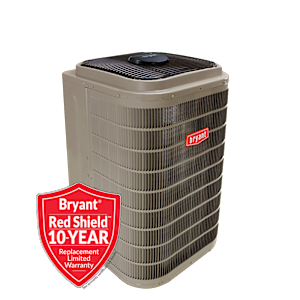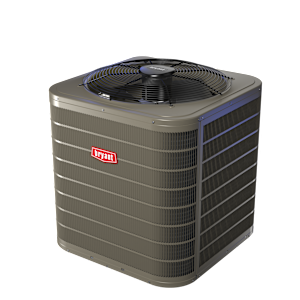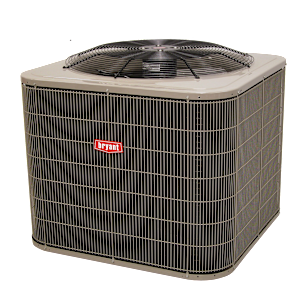About The Author: Travis Baugh is a Digital Brand Marketing Manager for Bryant, where he creates clear, helpful content to guide homeowners through heating, cooling, and indoor air quality decisions. His goal is to empower readers with the knowledge they need to choose the right comfort solutions for their home—confidently and comfortably.
Types of Heat Pump Systems
By Travis Baugh
Heat pump systems have become a cornerstone of energy-efficient home temperature regulation, gaining popularity among homeowners due to their dual capabilities in heating and cooling. Knowing the different types of heat pump systems is crucial for making decisions that cater to your specific household needs.
From air-source to geothermal options, each type offers distinct advantages tailored for varying climates and architectural designs. This article aims to provide a detailed exploration of the main types of heat pumps, delve into ducted versus ductless systems, and offer practical advice on selecting the optimal heat pump for your home. This comprehensive guide equips you with the knowledge to boost your home's comfort and efficiency.
Understanding Heat Pump Systems
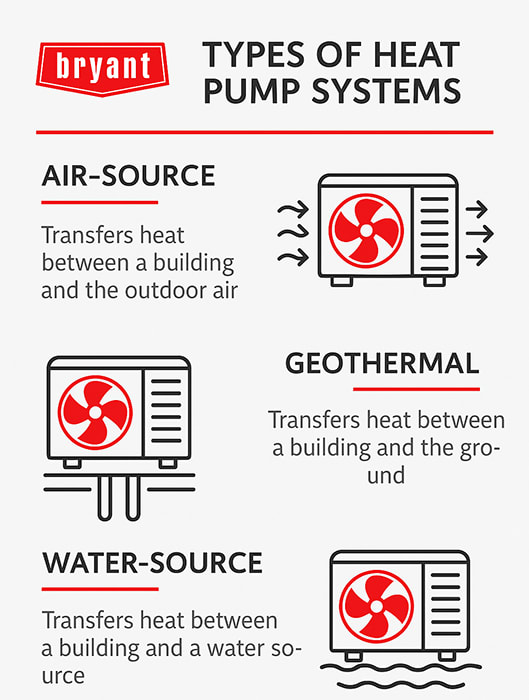
Heat pump systems are solutions for maintaining comfortable indoor climates, operating by transferring heat rather than generating it. Their function hinges on thermodynamic principles, utilizing refrigerants to absorb heat from external sources such as air, water, or ground, and then releasing it indoors. This mechanism can be reversed to cool your home, making heat pumps versatile and effective year-round. Learn more about what is a heat pump and how heat pumps work.
Unlike conventional heating systems, such as furnaces or boilers that rely on combustion to produce heat, heat pumps simply move existing heat. While traditional heating methods contribute to greenhouse gas emissions, heat pumps use electricity to relocate heat, which can lead to a smaller carbon footprint.
Modern heat pumps are designed to perform even in colder weather by extracting heat from the outside air, despite lower temperatures. Technological advancements have enhanced their efficiency in cold climates, ensuring reliability for residential heating needs. Learn more about cold climate climate heat pumps.
Moreover, many heat pump systems now feature smart technology, enabling homeowners to optimize energy usage through programmable settings and remote control via a smartphone app. Such capabilities not only enhance comfort but also promote further energy savings by adjusting systems according to occupancy and schedules.
Main Types of Heat Pumps
Heat pumps provide an effective method for heating and cooling residential areas by transferring heat, ensuring warmth during winter and cool air in summer. There are three primary types of heat pump systems: air-source, ground-source (geothermal), and water-source heat pumps.
Air-source heat pumps
Air-source heat pumps are widely used in homes, operating by extracting heat from the outside air and transferring it indoors, even in chilly conditions. This process utilizes a refrigerant that absorbs heat and circulates it within the system. A significant benefit of air-source heat pumps is their energy efficiency, offering up to three times more energy in heating than their electrical consumption. They are also easier to install and require less space compared to other heat pump systems. Their adaptability to various climates makes them a favored option for homeowners.
Geothermal heat pumps
Ground-source or geothermal heat pumps utilize the consistent temperature of the ground, involving buried pipes that circulate a fluid to absorb or dissipate heat. Geothermal systems are highly energy-efficient, helping to reduce heating and cooling costs. They often have a longer lifespan than air-source units. However, their installation is more complex and costly due to excavation and soil analysis requirements. Nonetheless, the long-term savings and environmental benefits can often outweigh the initial investment.
Water-source heat pumps
Water-source heat pumps function similarly to air-source and geothermal systems, using bodies of water as the heat exchange medium. These systems draw heat from nearby lakes, rivers, or wells in winter and release heat back into the water in summer. Water-source heat pumps are rare in residential settings in North America.
Understanding these main types of heat pump systems can assist homeowners in selecting the most appropriate option, ensuring year-round comfort and energy efficiency.
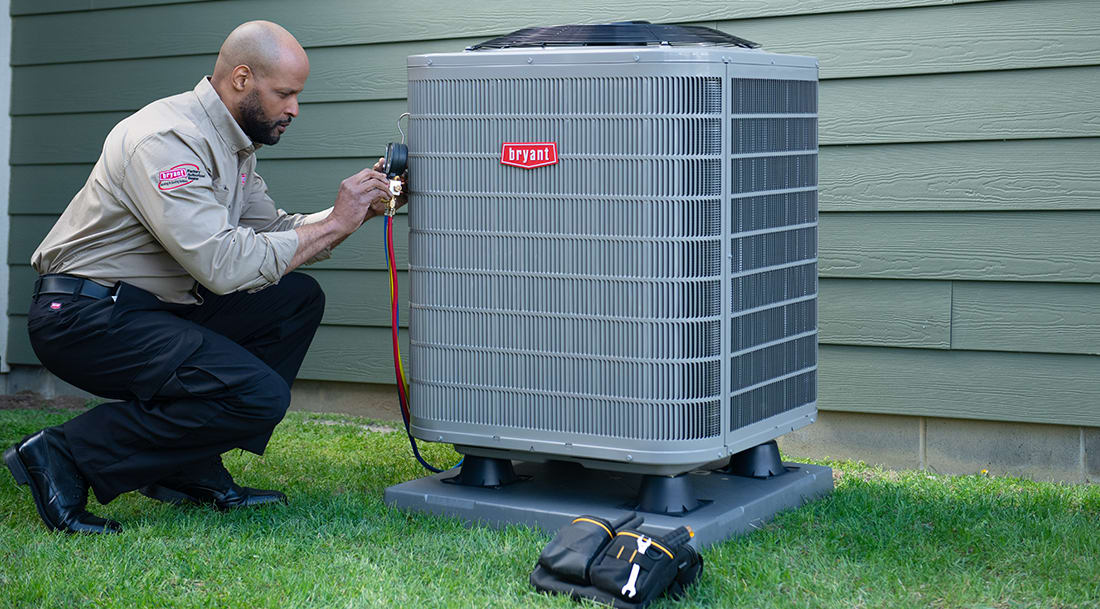
Ducted vs. Ductless Heat Pumps
When choosing heat pump systems for your home, discerning between ducted and ductless mini-split systems is vital. Ducted heat pumps utilize ductwork to distribute conditioned air, ideal for larger spaces or homes with existing ducts. In contrast, ductless mini-split systems consist of an outdoor unit connected to indoor air handlers, offering installation flexibility and zoning capabilities.
Installation factors are crucial when deciding between these options. Ducted systems may require extensive installation if your home lacks existing ductwork, involving significant renovations and higher upfront costs. Conversely, ductless systems are quicker and simpler for Bryant dealers to install, needing only a small wall hole for the refrigerant line, making them suitable for homes without ducts or for targeted room heating and cooling.
Energy efficiency varies between ducted and ductless systems. Ductless systems often excel in energy efficiency, particularly in homes where zoning is advantageous. With ductless setups, you can control temperatures in individual rooms, minimizing energy waste and helping lower heating and cooling bills. Meanwhile, ducted systems may experience energy loss through ductwork, especially if not well-insulated, which can lead to increased energy consumption.
The choice between ducted and ductless heat pumps depends on your specific needs, budget, and home layout. Evaluating these factors will help you make an informed decision and ensure you select the most efficient and effective heating solution for your residential space.
Choosing the Right Heat Pump for Your Home
Several factors should guide your decision when selecting a heat pump system for your home.
- Local Climate: Historically, heat pumps have exceled in moderate climates, but their performance has varied in extreme temperatures. However, the recent development of cold climate heat pumps makes heat pumps an option for colder regions as these heat pumps are designed for lower temperatures.
- Size of your home: A heat pump that's too small may struggle to maintain comfortable temperatures, while an oversized unit could lead to short cycling, reducing efficiency and lifespan. Consulting an HVAC professional for a load calculation can determine the appropriate size for your needs.
- Insulation: Well-insulated homes retain heat better, enhancing the heating system's efficiency. If your home lacks proper insulation, address this before investing in a new heat pump. Improved insulation not only supports the heat pump's performance but can also help reduce heating and cooling bills.
Energy efficiency ratings are essential. Seek units with high Seasonal Energy Efficiency Ratio (SEER2) and Heating Seasonal Performance Factor (HSPF2) ratings, indicating how effectively a heat pump converts energy into heating or cooling. Higher ratings imply better efficiency and lower operating costs. Understanding these ratings can help you make an informed decision and help you potentially save money on heating and cooling bills.
Consulting HVAC professionals is advisable when choosing a heat pump. Experienced technicians can offer tailored solutions based on your home's characteristics and specific heating and cooling needs. They can also guide you through various models and features, ensuring you select a system that provides comfort, efficiency, and reliability.
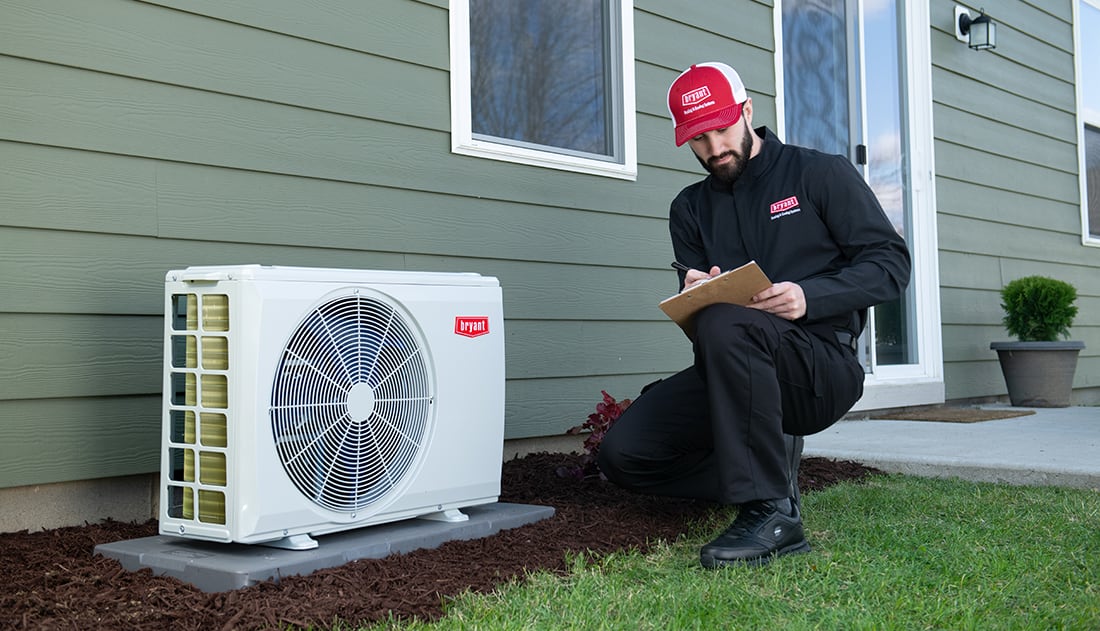
Connect With A Bryant Dealer On The Best Heat Pump For Your Home
Choosing the right heat pump system is a pivotal decision for any homeowner. The efficiency, comfort, and overall performance of your home's heating and cooling system can significantly impact your energy bills, environmental footprint, and indoor air quality. With various types of heat pump systems available, understanding the unique benefits and functionalities of each can help you make an informed choice that aligns with your specific needs.
At Bryant, we offer a range of heat pump systems designed to meet diverse requirements. Your local Bryant dealer is ready to assist you in finding the perfect match for your home, ensuring optimal comfort year-round. By considering climate, home size, insulation, energy efficiency, and professional guidance, you can confidently choose the right heat pump system to serve your home effectively for years. Schedule an appointment with your local Bryant dealer today.
Discover Bryant Heat Pumps
Choose a Bryant heat pump for reliable, energy-efficient heating and cooling all year round. Known for their durability and advanced technology, Bryant heat pumps offer superior comfort while lowering energy costs. With quiet operation and smart features like variable-speed motors, Bryant systems ensure optimal temperature control. Backed by industry-leading warranties and professional installation from your local Bryant dealer, a Bryant heat pump is a long-term investment in comfort, efficiency, and peace of mind for your home.
Learn More About Heat Pumps
- Explore Bryant heat pumps
- Discover what is a heat pump
- Find out more about heat pump installation
- Understand the value of a geothermal heat pump
- Explore heat pump repair
- Read our guide to heat pump cost
- Discover the differences between a heat pump vs furnace
- Understand what is an electric heat pump
- Learn what is an air source heat pump
- Discover what is auxiliary heat
- Learn about 3 ton heat pumps
- Learn about heat pump maintenance
- Find out more about heat pump replacement
- Explore cold climate heat pumps
- Read up on dual fuel heat pumps
- How do I know if I have a heat pump?
- Learn about heat pump benefits
- Explore the value of high efficiency heat pumps
- Find out about 4-ton heat pumps


